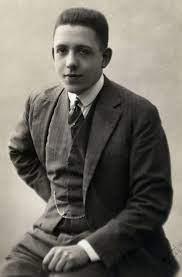



Vitam Musica Presents
Musical Portraits
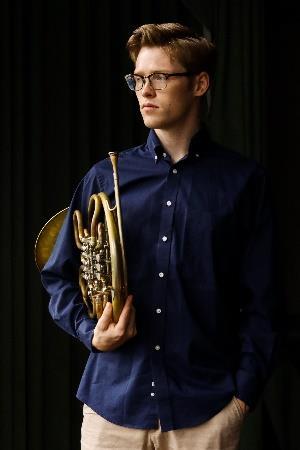
Featuring soloists: Seth Johnson,Alex Lunday, and David Lee
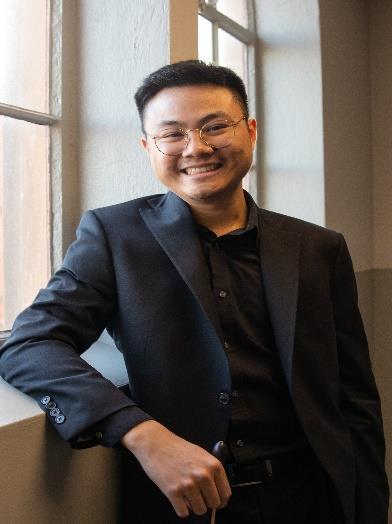
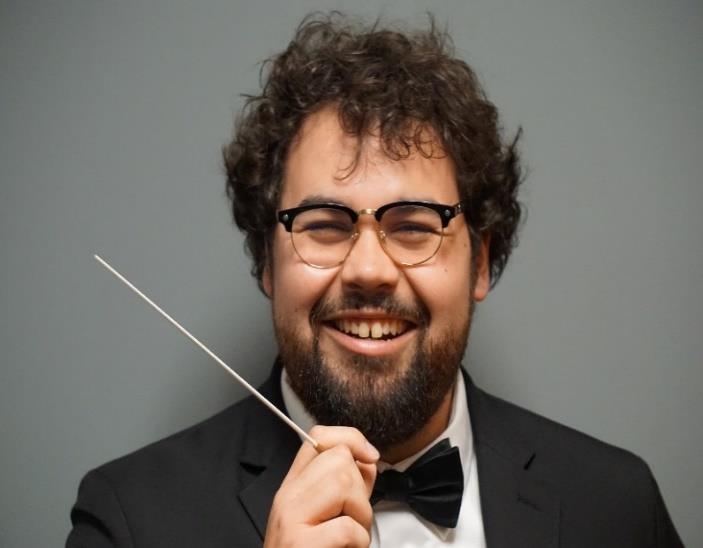
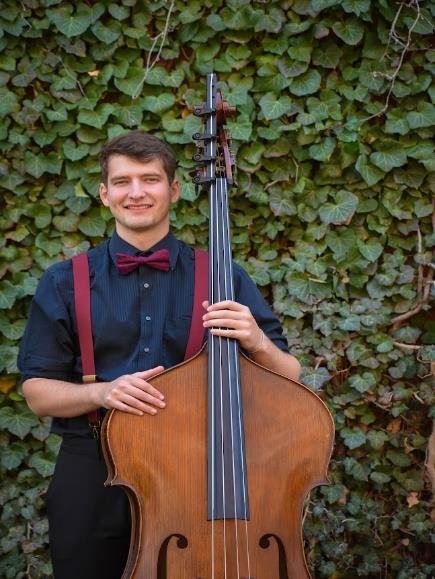

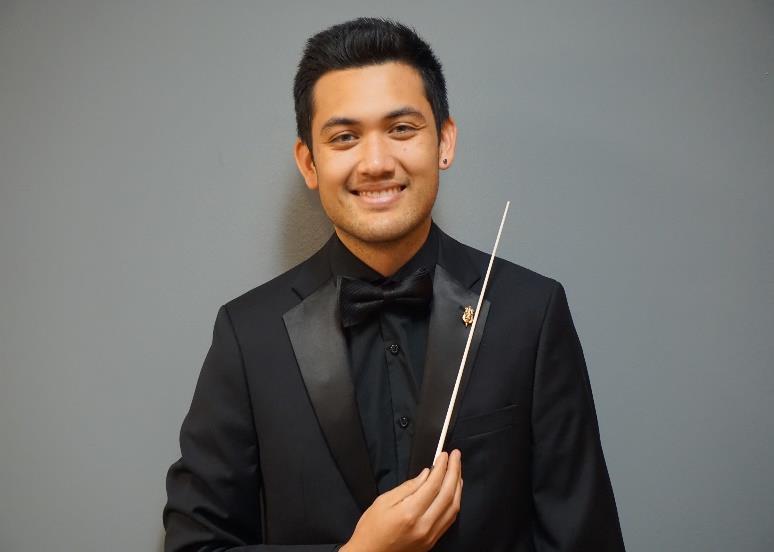
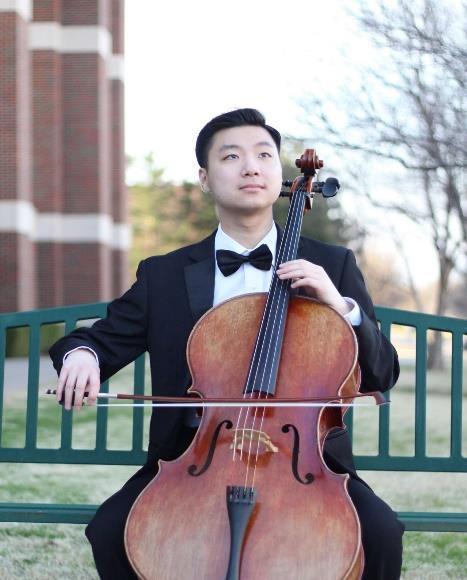 Directed by: Giang Vo, Samuel Brady, and Joshua Tobias
Directed by: Giang Vo, Samuel Brady, and Joshua Tobias
Horn Concerto in E-Flat Major, Op. 11 Richard Strauss
I.Allegro
Seth Johnson, Horn
Double Bass Concerto, Op. 3 Serge Koussevizky
I.Allegro
Alex Lunday, Double Bass
Cello Concerto in E minor, Op. 85 EdwardElgar
I.Adagio-Moderato
David Lee, Cello
Simple Symphony, Op. 4, Benjamin Britten
I. Boisterous Bourée
II. Playful Pizzacato
Samuel Brady, Conductor
Symphony no. 4 in F minor, Op. 36 P.I. Tchaikovsky
II.Andantino in modo di canzona
Joshua Tobias, Conductor
Sinfonietta, FPF. 141 Francis Poulenc
IV. Très vite et très gai
Giang Vo, Conductor
Special thank you to the Wanda L. Bass School of Music for the usage of their facilities for this concert
Giang Vo holds a bachelor’s degree in violin performance from Oklahoma City University. He began his musical education by being self-taught on the piano but eventually studied piano with Marye Cory and violin with Jeremy Scott, Peter Nguyen, Dr. Sophia Ro, and Dr. Benjamin Shute. He has participated in master classes with renowned artists Noah Bendix-Balgley and Sheryl Staples. He began his conducting education with Professor Jeffrey Grogan at Oklahoma City University. In the summer of 2021, he was selected as a conducting fellow at the Conductor’s Institute of South Carolina. Giang’s conducting mentors include MaestroAlexander Mickelthwate and Jeffrey Grogan. He has enjoyed being the apprentice conductor of the Oklahoma City Philharmonic for several of their Classics concerts. In the fall of 2023, Giang will be attending the Bienen School of Music at Northwestern University, studying orchestral conducting with Maestro Donald Schleicher.Aside from conducting, Giang is an amateur composer and an active violinist, playing with the Oklahoma Baroque Orchestra.
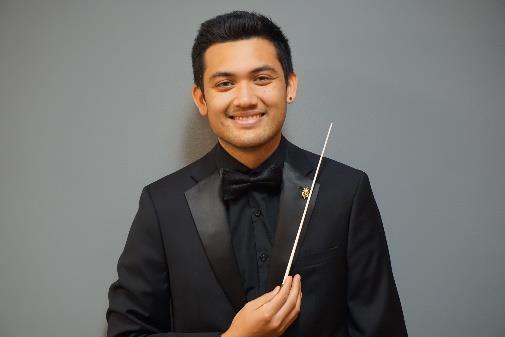
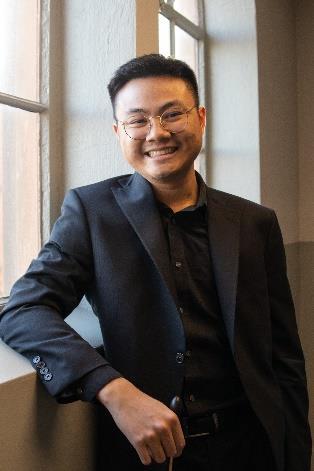
Joshua Tobias is a conductor whose passion lies in programming forgotten or underplayed works outside of the standard repertoire, and using artistic collaboration to create unique concert experiences. Raised in Flint, MI, Josh discovered his love for music initially through community outreach programs and programs at the Flint Institute of Music. These roots have made community outreach and educational programming an emphasis in Josh’s musical life. He currently works as a trombone instructor and middle school orchestra director for El Sistema Oklahoma, a free-to-attend program for Oklahoma City schoolchildren. Josh is currently pursuing a Master of Music in Orchestral Conducting at Oklahoma City University, studying with Jeffrey Grogan.As a graduate conductor, he serves as an assistant to the University Symphony Orchestra, assistant to Oklahoma Youth Orchestras, and teaching assistant for the undergraduate conducting courses. Josh is a graduate of Oakland University where he received a Bachelor of Music in Instrumental Performance on bass trombone.At Oakland, he studied in the studio of Kenneth Kroesche and began his conducting study with Gregory Cunningham. Outside of music, Josh enjoys spending time in nature, writing, making art, and spending time with his wife Lily, and two cats, George and Wallace.
Samuel Brady is an emerging young conductor currently based out of Oklahoma City, Oklahoma. He serves as the assistant conductor to the Oklahoma City University Symphony Orchestra, the Oklahoma Youth Orchestra, and as an apprentice conductor with the Oklahoma City Philharmonic. Throughout his young career, Samuel has worked with a multitude of ensembles including the Oklahoma City University Symphony Orchestra, Oklahoma Youth Orchestra, Hampton Roads Philharmonic, Christopher Newport University Wind Ensemble, and many others. Samuel has recently served as assistant music director of OCU’s production of Hansel und Gretel. His principal conducting teachers include: Jeffery Grogan, Alexander Mickelthewate, Mark Reimer, and John Irving. Samuel is an avid academic, with a special interest in Music Theory Pedagogy. He has published numerous chapters in Open Music Theory the first online open-source music theory textbook including: “Texture,” “Roman Numeral Analysis and SATB Chord Construction,” “Inversions and Figured
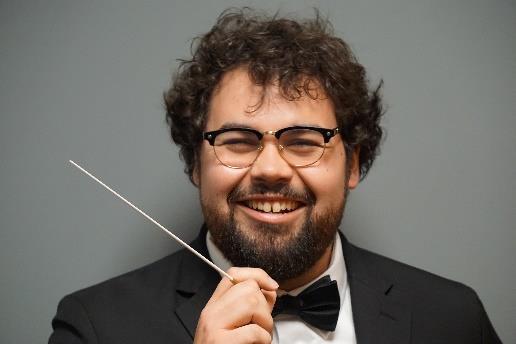
Bass,” and “The Basics of Sight Singing and Dictation.” His research has been presented at the College Music Society’s Mid-Atlantic conference and Christopher Newport University’s “Family Weekend Symposium” and “Summer Scholars Showcase.” Originally from Newport News, Virginia, Samuel holds a Bachelor of Music in Horn Performance, graduating Cum Laude with Honors in 2022 from Christopher Newport University. Currently, he is pursuing graduate studies in Orchestral Conducting at Oklahoma City University serving as a graduate teaching assistant, and playing in ensembles. When not in music, Samuel loves to stay active, coach field hockey, and find the perfect movie.
Seth Johnson is a Masters’student at the University of Texas at Austin.As a student, he has had the opportunity of performing regularly with the University of Texas Wind Ensemble, Symphony Orchestra, Butler Opera, and Horn Choir. Seth is an active performer within theAustin area and has had the pleasure of performing with ensembles such as the Central Texas Philharmonic, Victoria Symphony Orchestra, andAustin Brass Collective.Along with maintain an active performance schedule, Seth also runs a growing horn studio, that currently holds over twenty students. While pursuing his graduate degree, Seth competed and wont he Horn Ensemble Competition at the 2023 Mid-South Horn Conference, with the Graduate Horn Quartet.Aside from being a performer in theAustin area, Seth maintains a competitive horn studio, and frequently works as a guest instructor with schools in the mid Texas region. In the fall of 2023, Seth will be relocating to Cincinnati, Ohio, where he will be pursuing a DMAin Horn Performance form the University of Cincinnati College-Conservatory of Music (CCM).
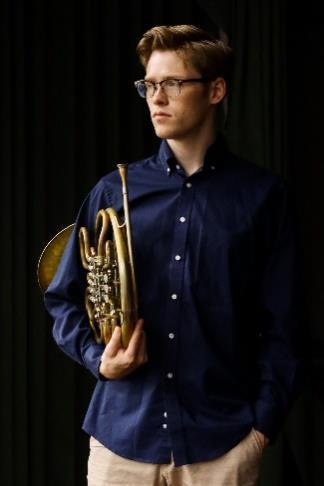
Alex Lunday is a graduate from The University of Oklahoma with a dual bachelor’s degree in Music Performance and German. He currently resides in Edmond, Oklahoma where he freelances.Alex has had the opportunity to be a part of various organizations, including The University of Oklahoma's Symphony Orchestra, The University of Oklahoma’s Opera, Opera on Tap OKC, Vitam Musica Foundation, Oklahoma Haydn Festival and the Oklahoma Bass Bash Boy’s Councilor.Alex has accepted a teaching assistantship at Florida State University, where he will pursue a Master’s Degree in Music Performance this fall. His hobbies consist of playing with his miniature daschund, Jimi, and playing electric bass.
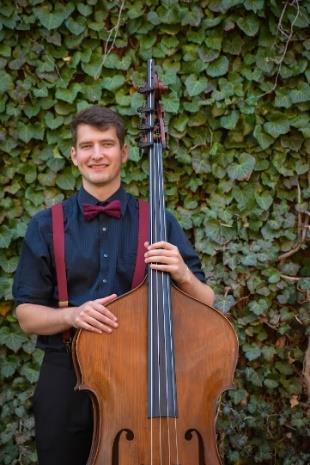
David Lee is a Korean-American cellist currently residing in central Oklahoma, where he has spent most of his life. He began studying cello at the age of 9 and pursued a career in instrumental performance for several years under the tutelage of Tomasz Zieba. In 2021, David decided to step away from the life of a professional musician to study clinical professional counseling – he currently is in the process of attaining license candidacy. David still enjoys playing professionally and finds that his time in counseling has offered him a fresh perspective on cello performance as a whole. In his free time, David loves to compose, read fantasy novels, and eat lots of good food.
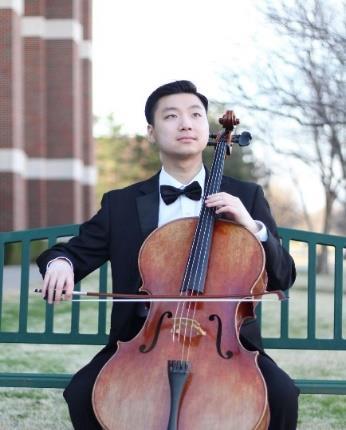
Musicians
Violins Bass Timpani
Andrés Caveda, concertmaster
Nathaniel Parker, assistant concertmaster
Gabriel Parker
Nick Quinnie, principal Brett Smith
Alex Lunday Piano
Xavier Vongphakdy Evelyn Culver
Meagan McCrary Flutes
Chazlen Rook
Violins II
Anna Deng, principal
Davon Carrington
Maria Marcos, principal Oboes
Elizabeth Chrisman, assistant principal
Brayden Tran
Alaina Brady-Hummingbird
Stephen Gunn
Jan Bachman
Amie Reardon, principal
Sarah Bird
Clarinets
Chris Maxwell, principal
Julia Kahmann
Violas Bassoons
Scotty Scott Jennie Higdon, principal
Jayden Lee
Dillan Francis
Preston Gilpatrick Horns
Alaina Conley
Jordan Fletcher
Cellos
David Lee, principal
Douglas Perry, assistant principal
Elmer Carter III
Brandon Cobb
Tom Wu
James Doss, principal
Joe Charlton
Seth Johnson
Samuel Brady
Trumpet
David Marvel, principal
Josh Harney
Trombones
Joshua Tobias, principal
Trey Cole
Paul Nguyen
Richard Strauss (June 11th, 1864 – September 8th, 1949) was a Late Romantic German conductor and composer, known for his tone poems and lieders. He was the son of Franz Strauss, principal horn of the Munich Court Orchestra and one of Germany’s leading horn virtuoso at the time. Upon leaving studies, he was introduced to the conductor Hans van Bülow, who subsequently commissioned a suite for winds, Suite for 13 Winds, and invited Strauss to conduct its premier. Following the conductor’s successful debut as composer and conductor, Bülow offered Strauss the position as assistant conductor of the Meiningen Orchestra.Afterwards, Strauss’career as a conductor and composer accelerated. He held many court orchestra positions as conductor such as the Munich Opera, Weimar Court Orchestra, Royal Court Opera in Berlin, and Vienna State Opera. During his time at Meiningen, Strauss was introduced to composerAlexander Ritter, who was an admirer of Wagner. Strauss had secretly studied Wagner as to not upset his father, but upon meeting Ritter, his interests in tone poems and the abandonment of classical form blossomed. His career weathered the turmoil of World War I, and in 1933, he was appointed two significant positions as head of the Reichmusikkammer and conductor of the Bayreuth Festival.Although he held these positions to protect his Jewish daughter-in-law and his Jewish grandchildren, many of his other Jewish family members did not survive the Holocaust. He was apolitical and also accepted these positions to protect the copyright of Jewish composers such as Mendelssohn and Mahler. Despite these intentions, he was criticized for being a Nazi collaborator and following the war, was subsequently placed under a denazification tribunal, which cleared him of any wrongdoing one year before his death.
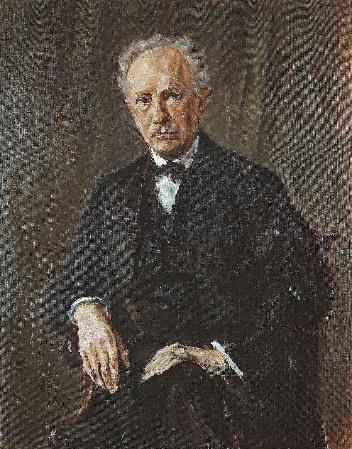
Strauss’ Horn Concerto no. 1 in E-flat Major (1882-3) was an early work, written when he was 18 years old. The concerto was dedicated to his father, a leading horn virtuoso. The title, Waldhornkonzert, indicated that the piece should be played with a natural valveless horn as the use of the natural horn was still widespread, i.e., Brahms’Symphony no. 3 which was written around the same time as Strauss’concerto. However, all modern performance is with the F-valve horn, as the higher ends of the valveless horn can prove to be dangerous.
Serge Koussevitzky (July 26th, 1874 – June 4th, 1951) was a late Romantic and early modern composer, conductor and double bassist. Koussevitzky grew up in a musical family, studying music with his parents. At 14 years old, he received a scholarship to study double bass at the MusicoDramatic Institute of the Moscow Philharmonic Society. He proved to be a talented bass player, earning a position with the Bolshoi Theatre in 1894 at the age of twenty. In 1902, under Reinhold Glière’s supervision, he composed his famous Double Bass Concerto, which he would premier in Moscow in 1905. Soon after, he resigned from the Bolshoi and studied conducting withArthur Nikisch, who was conductor of Boston Symphony and later Berlin Philharmonic.Alongside his status as composer, performer and conductor, he was an avid publisher. He helped published the works of Rachmaninoff,
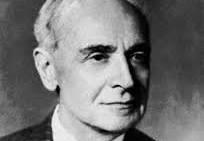
Prokofiev, Igor Stravinsky andAlexander Scriabin. Koussevitzky stayed in Russia during World War I and took the position of conductor at the State Philharmonic Orchestra of Petrograd. He left Soviet Russia in 1920 and took posts in Berlin and Paris but eventually settling down in the United States, succeeding Pierre Monteux at the Boston Symphony Orchestra. He was instrumental in building the ensemble’s flagship educational program, the Tanglewood institute, which continues to educate highly talented students to this day. Through the Koussevitzky foundation, many composers got their world premieres with the Boston Symphony, such as Béla Bartók and George Gershwin. Koussevitzky, along with his wife, became United States citizens in 1941. His students included Leonard Bernstein, SamuelAdler, and Sarah Caldwell.
Koussevitzky’s Double Bass Concerto in F-sharp minor is an early work. Written in the Late Romantic, Russian Bel Canto style, one can hear influences from previous generations of Russian composers such as Tchaikovsky, Glinka and Scriabin. The piece is full of melodrama, energy and terrifyingly difficult passages for the double bass, i.e., the famous double stops towards the conclusion of the first movement. The piece is a standard three movement concerto, with the Double Bass weaving in and out of the orchestral texture. However, unlike the convention, each movement seamlessly flows into the next.
Sir Edward Elgar (June 2nd, 1857 – February 23rd, 1934) was a Late Romantic English composer and conductor. Elgar grew up in a musical family. His father, William Elgar, was a professional violinist and organist at St. George’s Roman Catholic Church in Worcester. Elgar’s formal education was limited to local teachers, usually on piano and violin. He was a self-taught composer, reading through manuals and theory books. He had hopes of attending the Leipzig Conservatory but was unable to due to his family’s lack of finance. Throughout his early years, Elgar worked not as a composer, but as a teacher. He taught violin and occasionally accompanied the singers of the Worcester Glee club, of which he was a part of. Only in 1899, at the age of 42, that Elgar received general acclaim and recognition for his music with the premier of his Enigma Variations under the baton of Hans Richter. He had written a multitude of works before the Enigma Variations but had found very little success. The Enigma Variations established him as a quintessential English composer, and the pre-eminent English composer of his day. Having achieve recognition, Elgar’s succeeding works were met with increased anticipation and praise. His Symphony no. 1 inA-flat Major, Pomp and Circumstance Marches, In the South (Alessio) and Violin Concerto (which was dedicated to Fritz Kreisler) was also internationally met with success and recognition. He was knighted in 1904 and was made a baronet in 1931. However, with the outbreak of World War I and the subsequent destruction of Europe and the old-world order, Elgar’s music became increasingly out of fashion. Many saw his music as the portrait of the VictorianAge, which with its Romanticism and aesthetics, were destroyed as a result of the war. His final work, the Cello Concerto, was met with very little recognition. Despite recording some of his works atAbbey Road, his music was neglected for much of the inter-war years.
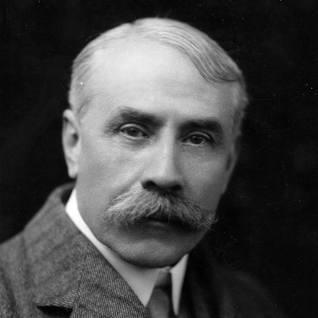
Elgar’s Cello Concerto in B minor was the last work that Elgar composed. Written in 1919 following the aftermath of World War I, it is full of melancholy, sadness and longing. In contrast to the Violin Concerto, written before the war, the piece is more contemplative and funerial. It was not received well at its premier, due to a lack of rehearsal time and the taste of classical music moving away from the Romanticism of the VictorianAge. It only garnered recognition and acclaim due to Jacqueline du Pré, who championed the piece in the 1960s, three decades after Elgar had died. The Concerto was written at Elgar’s cottage, near the channel from France. During the war years, distant artillery could be heard by Elgar from across the channel. Elgar underwent a dangerous operation in 1918, and upon regaining consciousness, scribbled down the opening theme of the concerto. The work did not receive its second premier in London until a year later, as opposed to the premier of his First Symphony, which had hundreds of performances in its first year.
Benjamin Britten (November 22nd, 1913 – December 4th , 1976) was an Early Modern English composer, conductor and pianist.At an early age, Britten demonstrated musical talent and eventually studied at the Royal College of Music (RCM) and privately with composer Frank Bridge. He won the composition scholarship at the RCM, the panel included RalphVaughan Williams.Also, during his time at the RCM, he won the Sullivan Prize for composition, the Ernest Farrar prize for composition, twice, and the Cobbett Prize for Chamber Music. Britten intended to study in Vienna for his postgraduate studies but was dissuaded by his family and the RCM faculty. His influences were more continental European composers than native English composers. He became more informed of the music of Mahler, Stravinsky, Shostakovich, Schoenberg, and Alban Berg. In 1935, Britten was invited to be interview byAdrian Boult at the BBC’s music department. His invitation was to compose the score for the film, The King’s Stamp. During the interwar years and before the outbreak of World War II, Britten composed mainly for theatre, cinema, and radio. Britten had his most well-known work from this period, Variations on a Theme of Frank Bridge, debut in NorthAmerica. These debuts were conducted by John Barbirolli and Serge Koussevitzky. Following in the success of his teacher, Frank Bridge, Britten and his partner Pears, traveled toAmerica. Following the outbreak of the war, despite their intentions to return to England, they stayed in the States as artistic ambassadors under the advice of the British embassy. In the States, he befriendedAaron Copland, encountering works such as Billy the Kid. During this time, Britten produce some of his most well-known pieces, including his Violin Concerto. Britten was a known critic of his contemporaries. Upon hearing a broadcast of Ralph-Vaughan Williams, Britten claimed that he “have never felt more depressed for English music” and “Certainly the best way to make me like Elgar is to listen to him after Vaughan Williams”. He had no sympathy for Elgar either, stating that “Elgar Second Symphony. Dreadful nobilemente semplice. I came out after the 3rd movement – so bored”.
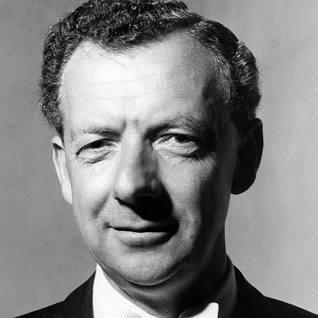
Britten’s Simple Symphony Op. 4, similar to Strauss’Horn Concerto and Koussevitzky’s Bass Concerto, is another early work. It is written for a string orchestra and utilizes materials that he had written down as a teenager. It premiered in Norwich, under the baton of Britten and unlike Elgar’s Concerto, which looks back to the early years with melancholy and longing, Britten’s Simply Symphony looks back at the early years of his life with renewed energy and forward motion. More so than Elgar, Britten utilizes older English dances in this piece which gives it a folksy and country-like feel.
Peter Ilyich Tchaikovsky (May 7th, 1840 – November 6th, 1893) was a Romantic Russian composer and conductor. Tchaikovsky was born into a big family of six.Although displaying talents and interests in music from an early age, he was forced to study at the St. Petersburg’s Imperial School of Jurisprudence. Here, he met his lifelong friend and occasional lover,AlekseyApukhtin. It was also during his time at the school that his mother passed away. Her death affected him greatly, and prompted to attempt his first serious composition, a waltz to remember her. Upon finishing at the school, Tchaikovsky worked as a civil servant. He was a titular counselor, a relatively low position within the civil service. In 1862, the St. Petersburg Conservator opened its doors and Tchaikovsky took the opportunity to enroll as its premiere class. Its director,Arthur Rubenstein, was impressed by Tchaikovsky’s musical talent, however held reservation and at times, hostility towards the young composer’s more progressive leanings. Upon graduating from the Conservatory in 1865,Arthur Rubenstein’s brother, Nikolai, offered Tchaikovsky the post of Professor of Music at the soon to be Moscow Conservatory. During his time as professor of music, Tchaikovsky submitted his Symphony no. 1 “Winter Daydreams” to the Russian Musical Society for performance, but was met with intense hostility fromArthur Rubenstein, who refused to consider it if substantial changes were not made. Tchaikovsky acquiesce but Rubenstein still refused to perform it. The same situation occurred with his Piano Concerto no. 1 in B-flat minor, a work that Rubenstein ridiculed and urged Tchaikovsky to revise under his supervision. Tchaikovsky refused and published it as he intended, leading to the work’s massive success. Rubenstein, in a move that could be due to the work’s success, reversed his hostilities and became a champion of the concerto. Throughout his career as a composer, Tchaikovsky was well aware that his homosexuality would prove to be a dagger in his success and actively attempted to suppress it, going as far as marryingAntonina Miliukova. This marriage proved to be a disaster leading to a crisis point in his life. He never blamed her for their failed marriage and came to truth regarding his sexuality. He remained a prolific composer, conductor and critic for the remainder of his life. Imperial commissions and support from his patron, Nadezhda von Meck, gave him the freedom to composed. He is well remembered for his final three symphonies, ballets such as Nutcracker, Swan Lake, and Sleeping Beauty.As well as operas such as Eugene Onegin, La Dame Pique and various concerti such as the Violin Concerto, Piano Concertos 1 and 2, Rococo Variations and various chamber works.
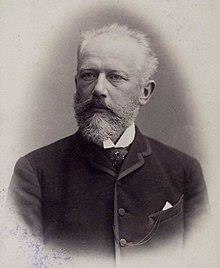
The failed marriage to Antonina birthed his Symphony no. 4 in F minor. This symphony is a portrait of his inner struggles and represented fate.As he puts it, “that fateful force which prevents the impulse to happiness from attaining its goal, which jealously ensures that peace and happiness shall not be complete and unclouded, which hangs above the head like the sword of Damocles, unwavering, constantly poisoning the soul. It is an invincible force that can never be overcome-merely endured, hopelessly”. The second movement is a beautiful movement that displays the orchestration talents of Tchaikovsky. His signature melodies that meander alongside an ever-changing sea of color evokes images of ballet, full of drama and elegance.
Francis Poulenc (January 7th, 1899 – January 30th, 1963) was an early 20th century French composer and pianist. He is known for his chamber music, songs, choral pieces and ballets. Poulenc was born into a capable musical family, but at his father’s insistence, he followed a conventional education as opposed to a musical one. After the death of his father, Poulenc found encouragement from his mentors to compose. He met and befriended GeorgesAuric and Erik Satie, both of whom influenced and shaped his early years. In 1917, he made his debut with his Rapsodie Nègre, a chamber piece for baritone which was influenced by the Parisian fashion for African arts. Amongst the audience of the premier was Maurice Ravel who was amused by the piece. Stravinsky was also in attendance and was impressed enough to secure Poulenc a publishing contract.Although receiving comments from Ravel, Poulenc found subsequent encounters and talks with Ravel to be less evocative. In 1918, Poulenc served in the French military towards the end of World War I, eventually ending up as a typist for the Ministry ofAviation. Throughout his career, his lack of academic and formal training garnered hostilities from critics. Many saw his success due to the anti-romantic fervor as a result of the destruction caused by World War I. Poulenc found fame in the interwar years in France and England. Unlike his contemporaries in the Second Viennese School, his music is full of tonal and modal mixtures. Poulenc lived through World War II, serving briefly as a soldier. Poulenc lived in during the Nazi occupation of France and musically composed many gestures of defiance against Germans.After France was liberated in 1945, Poulenc was invited to London to the enthusiastic welcome of the British audience. The London Philharmonic gave a concert in the composer honor, featuring his Double Piano Concert at Royal Albert Hall in which Benjamin Britten was the soloists alongside Poulenc. In the postwar years, Poulenc became a staunch defender of Igor Stravinsky, fighting against the tides of the Second Viennese School of Schoenberg.
The BBC commissioned the Sinfonietta FPF. 141 from Poulenc in 1947. The work is full of humor, lightness, dance and charm. Its last movement is akin to the humor and jokes of Haydn. The Sinfonietta is his only symphonic work, lasting about 30 minutes.
